IHL and Hostilities in the Kursk Region: What Obligations Does Ukraine Have? Key Takeaways from the Embassy Briefing
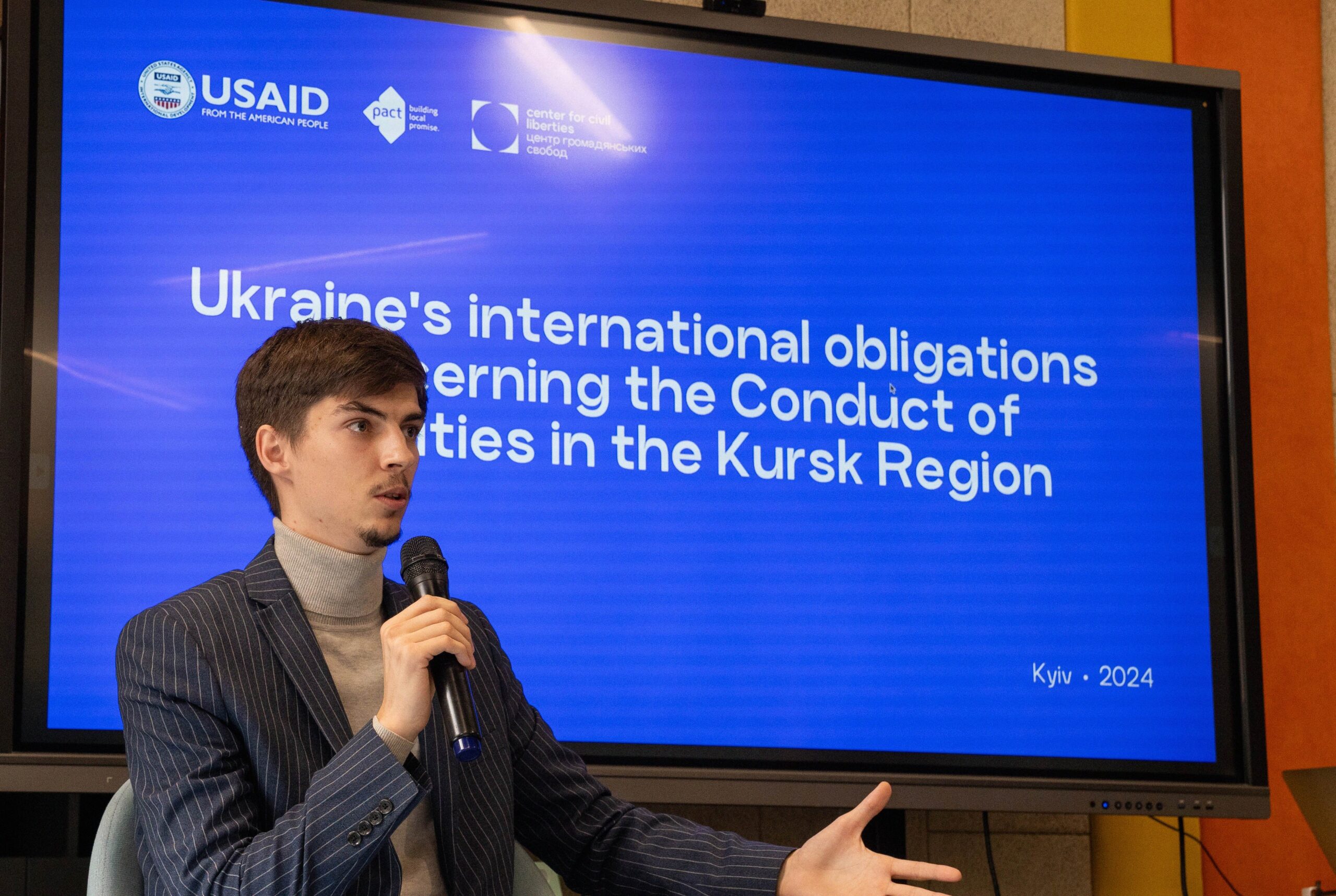
On Monday, 30th of September, the Center for Civil Liberties held a briefing for the representatives of diplomatic missions: “Ukraine`s International obligations concerning the Conduct of Hostilities in the Kursk Region”. The briefing was aimed to discuss Ukraine`s obligations in the Kurks military zone within the principles of International Humanitarian Law, the status of the abovementioned region, and the problems of the civil society evacuation there.
The invited speakers shared their experiences and thoughts on the possible political and legal consequences of the military operation in Kursk, discussing topics such as the legality of Ukraine’s actions, the treatment of civilians and POWs during the hostilities, and other important issues.
The speakers of the event were:
- Oleksandr Pavlichenko, the Executive Director of Ukrainian Helsinki Human Rights Group;
- Mykyta Petrovets, a lawyer in the Regional Centre for Human Rights, specializing in the international humanitarian law and international human rights law;
- Daniil Ukhorskiy, the Ukraine Program Manager at Legal Action Worldwide (LAW);
- Yuliia Matviichuk, the coordinator of human rights protection in the “EastSOS” Charitable Foundation.
- Tymofii Atamanchuk, a moderator of the briefing and the legal analyst in the “Center for Civil Liberties”.
The briefing began with a presentation by Oleksandr Pavlichenko, who discussed the peculiarities of the military zone in the Kursk region and the status of this area.
“First of all, from August 6th until today, it has been a zone of Ukrainian occupation under Ukrainian control. The responsible side must apply IHL (International Humanitarian Law) standards toward the civilian population as well as to the POWs. There is also the question of possible access for impartial, independent monitors. For example, there is a proposal to organize UN monitoring missions. But, in order to organize it, we need authorization from the Russian Federation, which, of course, Russia does not provide us with, rejecting Ukraine’s requests.
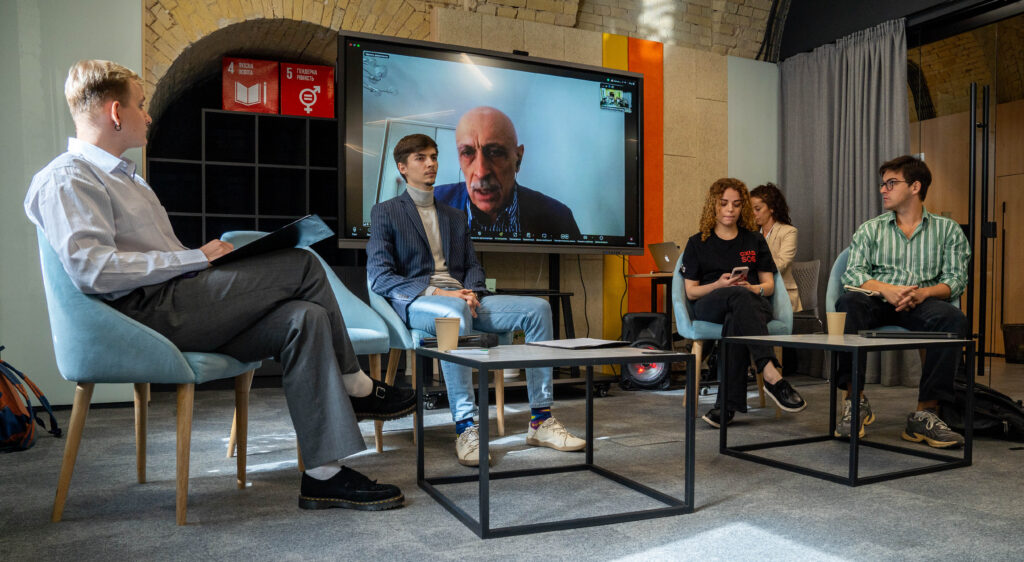
The next essential topic to cover is the civilian population. The number of civilians is now below 5,000 after the evacuation from the territory. Before August 6th, the local population was approximately 25,000. Accordingly, 80% were evacuated to the Russian Federation .Since part of the population remains, it raises significant questions about how to protect them and organize potential evacuation and humanitarian assistance”, stated Oleksandr Pavlichenko.
The next speaker, Mykyta Petrovets, raised an important question about sabotage activities in the occupied territories and the status of civilians who participate in such actions.
“According to IHL, the principle of distinction differentiates combatants from the civilian population, as well as military objects from civilian ones. In addition, this principle requires combatants to target only military objectives during an attack. On the other hand, civilians must also limit any possible participation in hostilities to be protected under their status.
If they do not comply with this status and engage in actions that threaten the safety of the occupying power, it may result in certain consequences. For example, if a civilian participates in hostilities, he/she becomes a legitimate target for an attack during the time of his/her involvement. Moreover, this person may be detained and prosecuted for their acts. Another example is espionage, where civilians secretly gather information to transmit it to Russia. Such persons may also be detained and prosecuted in accordance with IHL. In addition, both categories may be subject to internment”, told Mykyta Petrovets.
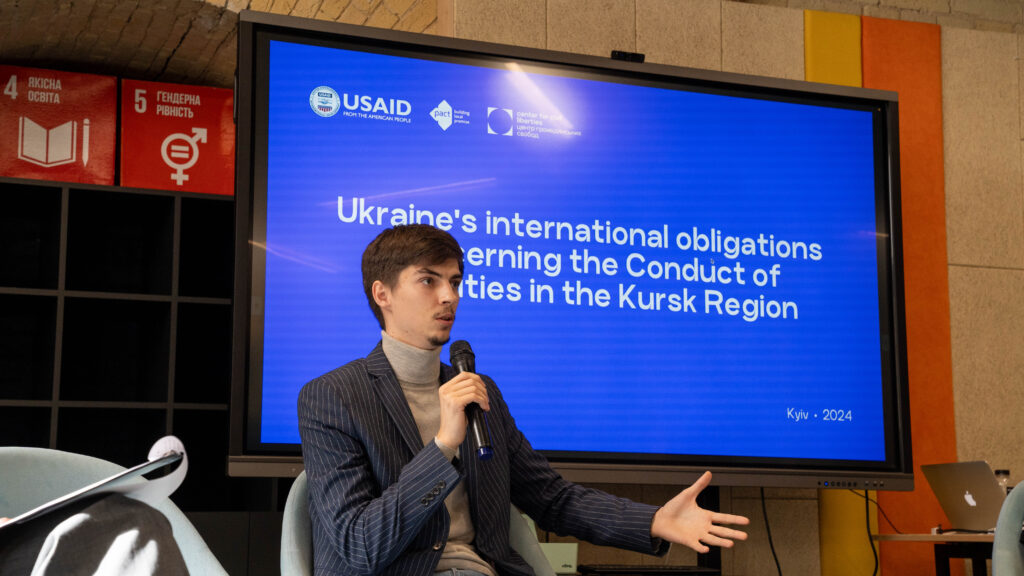
“There are some controversial topics regarding the Kursk military operation, including reports of mistreatment from Ukraine’s side during the period between being taken from the frontline by military units and ending up in detention facilities. First to highlight, the International Red Cross (ICRC) conducts constant checks. Personally, I have not seen any credible reports of mistreatment by the Ukrainian side related to Kursk.
It is important to highlight that Ukraine is acting in self-defense regarding the Kursk incursion. This position is not controversial and should not be. Article 51 of the UN Charter states that countries have the right to collective or individual self-defense as long as it is necessary. Therefore, the Kursk incursion is clearly within Ukraine’s right to self-defense”, highlighted Daniil Ukhorskiy.
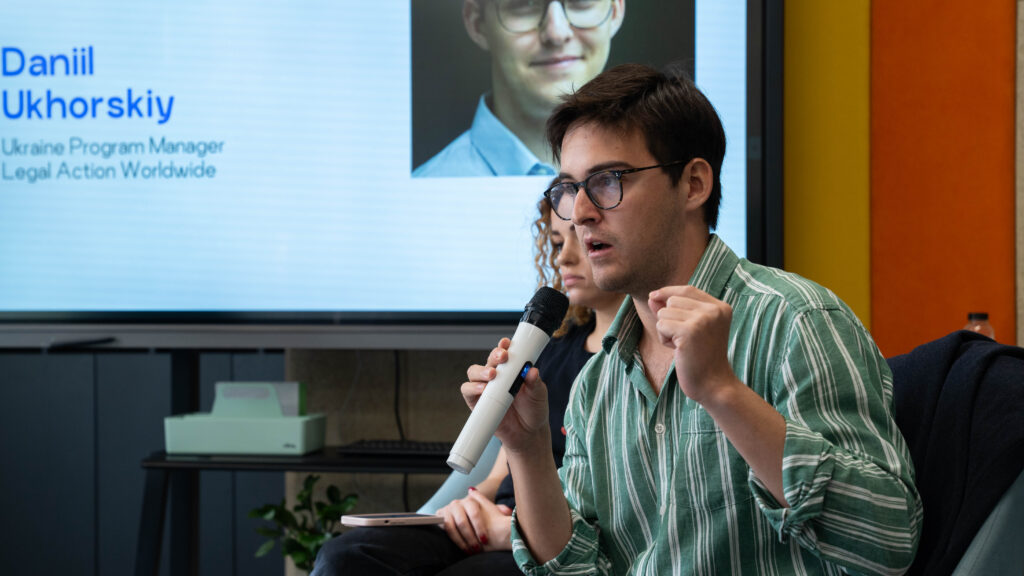
‘Ukraine has obligations regarding Kursk and the protection of local civilians. When implementing evacuation in Kursk, we must first try to ensure the evacuation of people within their own country. However, Russia has not yet initiated any humanitarian corridors, therefore we cannot evacuate people there. In August, Mrs. Vereshchuk (at that time – Deputy Prime Minister for Reintegration of the Temporarily Occupied Territories of Ukraine, and now Deputy Head of the Office of the President of Ukraine) announced the opening of a hotline through which people from Russia could call to request evacuation to Ukraine.
In the event of evacuation from Kursk to Ukraine, we must comprehensively document the voluntariness of such evacuation and be sure to obtain written consent from those who wish to go to Ukraine.
The program for evacuating vulnerable persons in the territory controlled by the Ukrainian Government (e.g. the elderly and people with disabilities) is supported by civil society (NGOs, foundations, etc.), who respond to evacuation requests and pick up people and take them away from the areas of active hostilities on their own.
In our work, when evacuating people in the government-controlled territory, we take into account the status of individuals, especially vulnerable groups such as children and the elderly, and guarantee that evacuations will not be carried out by force,’ Yuliia Matviichuk noted.
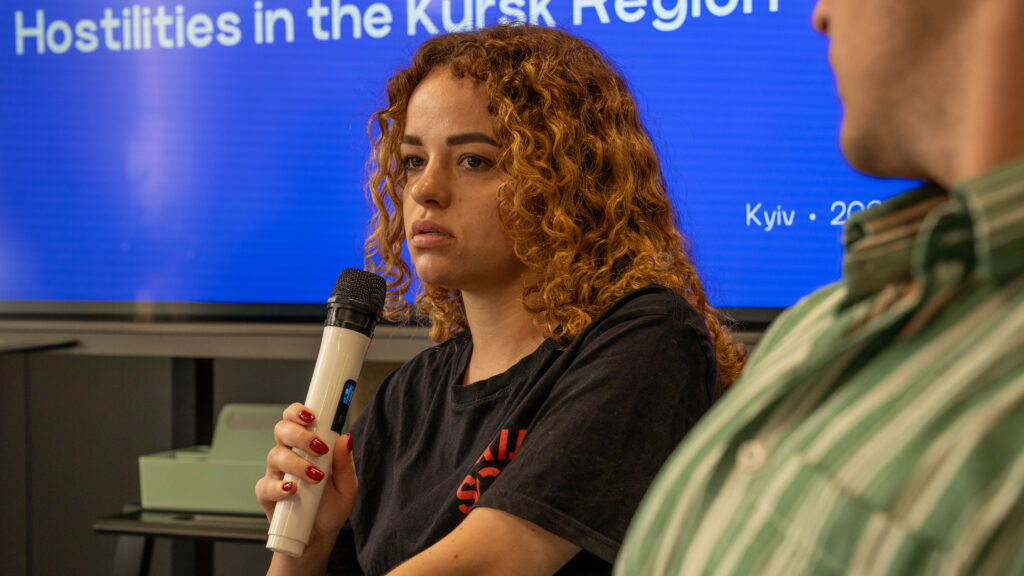
The event took place within the framework of the Public Engagement Promotion Program “Join!”, which is funded by the United States Agency for International Development (USAID) and implemented by Pact in Ukraine. The content of the event is the sole responsibility of Pact and its partners and does not necessarily reflect the views of USAID or the U.S. government.
Author: Khrystyna Zhevlakova, volunteer of the Center for Civil Liberties
Center for Civil Liberties operates with the support of the European Union.

